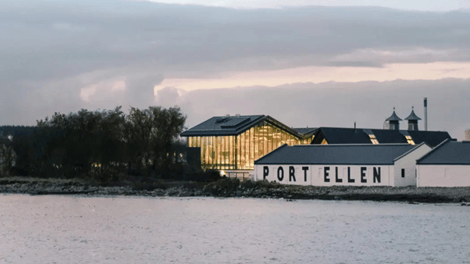- Reminders
- Whisky
- Blog

The Most Collectible and Valuable Whiskies: A Guide to Evaluation

As you start your whisky collection, you’ll notice that there are seemingly endless options that you can choose from. You want to buy the best bottles, but how do you determine which whiskies are worth collecting? In this article, we will highlight some of the current most valuable whiskies on the market and provide insights on how to evaluate different types of whiskies.
The Most Collectible and Valuable Whiskies
1. Macallan Fine & Rare Collection
Macallan is one of the most renowned distilleries globally, known for producing some of the finest single malt Scotch whiskies. The Fine & Rare Collection is the pinnacle of Macallan’s offerings, representing the distillery’s most exceptional and aged casks.
Age: The collection includes whiskies ranging from 1926 to more recent vintages, with some bottles aged for over 60 years.
Rarity: Each release is limited, often with fewer than 100 bottles per vintage.
Flavour Profile: These whiskies exhibit complex profiles, often featuring rich notes of dried fruits, spices, chocolate, and oak, with a silky texture and long, elegant finish.
Market Value: Bottles from this collection often fetch astronomical prices at auctions, with some selling for over $1 million.
Several bottles from the Macallan Fine and Rare Collection. Photograph from Stilnovisti.
2. Glenfiddich 1937 Rare Collection
Glenfiddich is one of the world’s most iconic distilleries, and the 1937 Rare Collection is a testament to its legacy. This particular expression is one of the oldest and most prized Glenfiddich releases.
Age: Distilled in 1937 and bottled in 2001, this whisky was aged for 64 years.
Rarity: Only 61 bottles were produced, making it extremely rare.
Flavour Profile: Expect deep, complex flavours with notes of oak, dark chocolate, and dried fruit, complemented by a robust, lingering finish.
Market Value: Due to its rarity and age, this whisky commands high prices at auction, often exceeding $100,000 per bottle.

The Glenfiddich 1937 Rare Collection. Photograph from Press and Journal.
3. Yamazaki 50-Year-Old
Yamazaki is Japan’s oldest malt whisky distillery, and the 50-Year-Old is a prime example of its craftsmanship. This whisky is a symbol of the distillery’s commitment to quality and innovation.
Age: Aged for 50 years, one of the longest-aged Japanese whiskies available.
Rarity: Very limited releases, with only 150 bottles produced in three batches.
Flavour Profile: Rich and complex with notes of dark chocolate, dried fruits, leather, and a hint of smoke, balanced by a smooth, velvety texture.
Market Value: This whisky is highly coveted, often selling for over $300,000 per bottle at auction.

The Yamazaki 50-Year-Old. Photograph from Sotheby’s.
4. Bowmore Black 1964
Bowmore, one of Islay’s oldest distilleries, is known for its peaty single malts. The Bowmore Black 1964 is legendary, combining the distillery’s smoky character with extraordinary aging.
Age: Distilled in 1964 and bottled in the 1990s, aged for 31 years.
Rarity: Only a few hundred bottles were produced, split across three releases.
Flavour Profile: A harmonious blend of peat smoke, tropical fruit, dark chocolate, and a touch of sea salt, offering a unique and captivating taste experience.
Market Value: Bottles can sell for over $50,000, with some rare editions reaching even higher prices.

The Bowmore Black 1964. Photograph from Bowmore.
5. Dalmore 62-Year-Old
Dalmore is synonymous with luxury in the whisky world, and the 62-Year-Old is a testament to the distillery’s dedication to excellence and craftsmanship.
Age: Aged for 62 years, showcasing the distillery’s ability to create long-aged whiskies.
Rarity: Only 12 bottles were produced, each uniquely named and presented in bespoke packaging.
Flavour Profile: Deeply rich with notes of coffee, citrus fruits, spices, and a hint of balsamic, culminating in a complex, enduring finish.
Market Value: Due to its exclusivity, bottles have been known to sell for over $150,000.

The Dalmore 62-Year-Old. Photograph from Sharp Magazine.
How to Evaluate Different Types of Whiskies
What do all these bottles have in common? What makes certain whiskies more valuable and collectible than others?
1. Age and Maturation
The age of a whisky is a significant factor in its value. Older whiskies are generally more expensive due to the prolonged maturation process, which adds depth and complexity to the flavour. However, age alone is not the only indicator of value; the type of cask and the maturation environment is also important as it can change the flavour and quality of the whisky.
2. Distillery Reputation
Whiskies from renowned distilleries tend to be more collectible. Distilleries like Macallan, Glenfiddich, and Yamazaki have built reputations for producing high-quality, sought-after whiskies. Their legacy and consistent quality make their releases more desirable.
3. Limited Editions and Rare Releases
Limited edition and rare release whiskies are often highly collectible due to their scarcity. Bottles produced in small quantities, such as special commemorative releases or single cask bottlings, attract collectors looking for unique additions to their collections.
4. Packaging and Presentation
Unless you are solely looking to purchase whisky to taste and enjoy it, the packaging and presentation of a whisky can significantly impact its collectability. Bottles with unique designs, artistic labels, or elaborate packaging tend to stand out and can become collector’s items. Original packaging in pristine condition is particularly valuable.
5. Provenance and Condition
You’ll likely want to know that your whisky is authentic and has retained its quality over the years, as do other collectors and investors. The provenance of a whisky, including its history and previous ownership, can affect its value. Whiskies with a documented history or those that have been well-preserved by reputable collectors are more desirable. Additionally, the condition of the bottle, label, and packaging is crucial. Any damage or signs of leakage can significantly reduce a whisky’s value.
6. Market Trends and Expert Opinions
Staying informed about market trends and seeking expert opinions can help you make informed decisions when collecting whisky. Auctions and online forums are valuable resources for understanding current market values and identifying emerging trends. You can also attend whisky tastings and festivals to speak with other enthusiasts about which whiskies are garnering interest.
Want to learn even more about how to determine the value of different bottles and why they vary in price and appreciation? Visit the WhiskyGenius blog, where there are several other articles to help guide you through investing in whisky.
Conclusion
While it is not necessary to have these rare bottles to start and have an impressive whisky collection, you will likely be drawn to them at some point of your collecting journey. By understanding the factors that contribute to a whisky's collectability and value, you can make informed choices and build a collection that is both enjoyable and potentially profitable. Whether you’re drawn to the age-old elegance of a Macallan or the modern allure of a Yamazaki, the world of whisky offers endless possibilities for discovery and appreciation. Ready to discover a range of rare whiskies? Find one right here on WhiskyGenius.
Please enjoy whisky responsibly.
Banner Photograph from TheWhiskyAdvocate.
More Content
View More




















